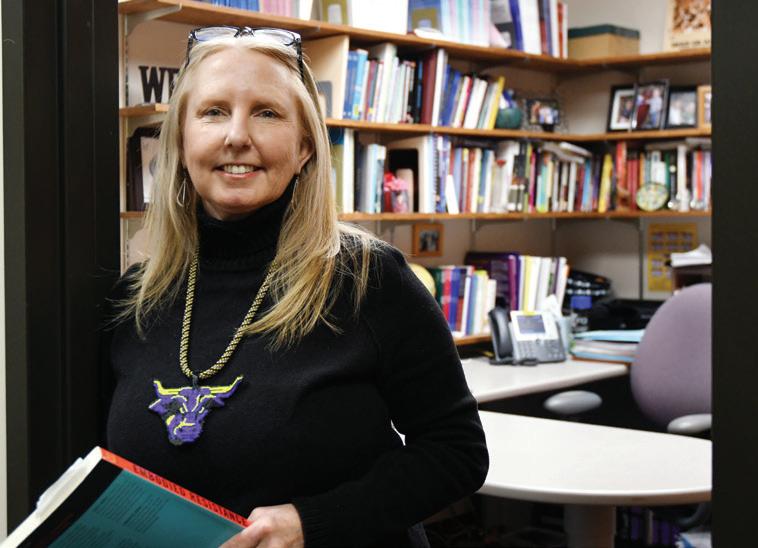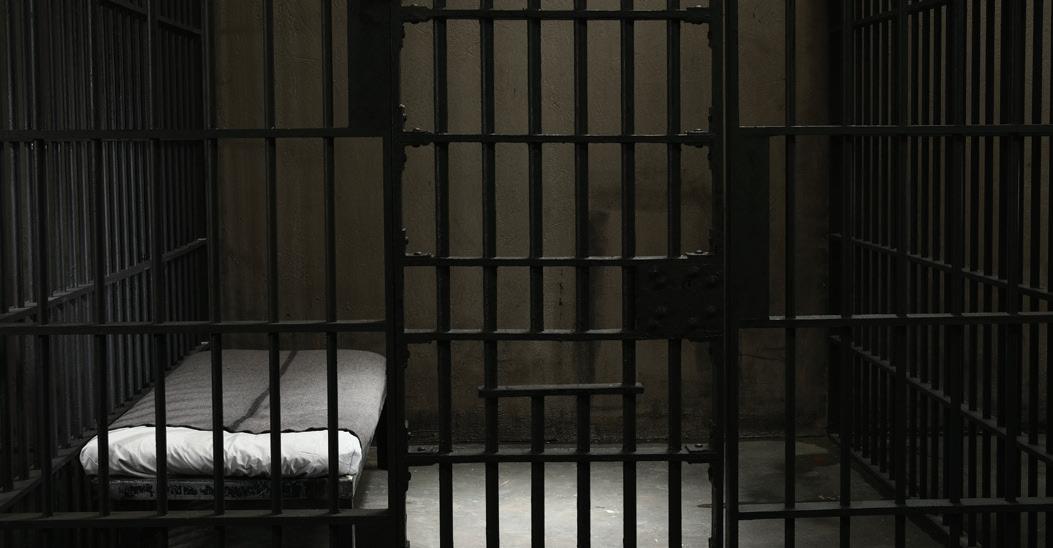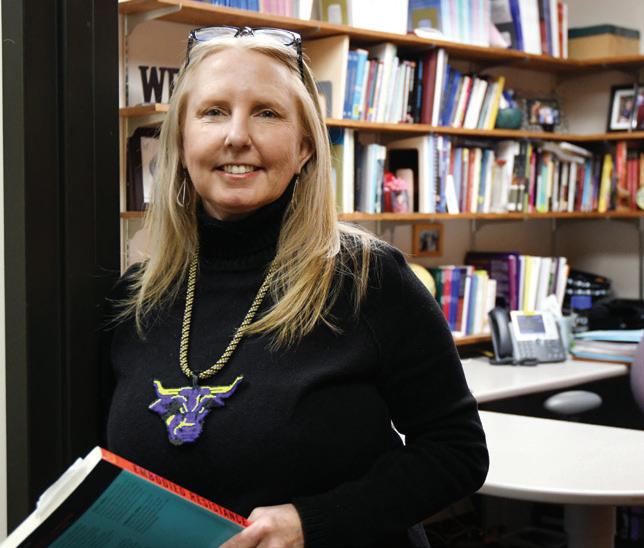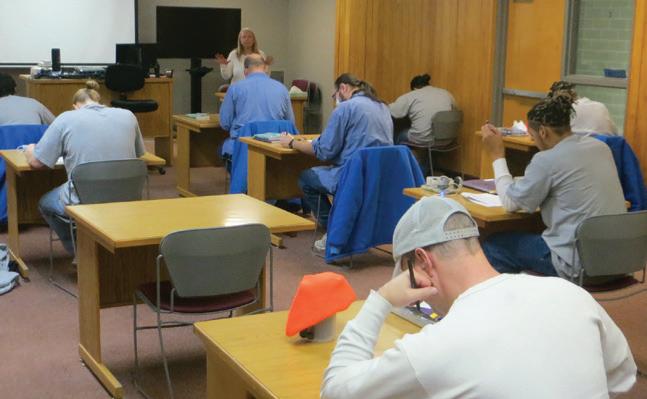
3 minute read
SCHOLARS SERVING TIME

A SECOND CHANCE AT EDUCATION

By Grace Brandt ’13
Vicki Hunter is program coordinator for the Scholars Serving Time Program
Melissa Petesch was in her fourth year in prison when she enrolled in Minnesota State Mankato’s Scholars Serving Time program. “I was a drug dealer,” said Petesch, 33. “I never thought I could go to college. I didn’t think I would make it or was smart enough. So when they posted the criteria I just said ‘What better place to start clean and fresh but prison.’” The Scholars Serving Time Program provides the opportunity for incarcerated students to earn associate of arts degrees. Program coordinator Vicki Hunter said the goal is for graduating students to have a broad level of knowledge and understanding that can also serve as a solid base if they want to continue their education. “That kind of a base is so important for many reasons, both for personal growth and [for students’] ability to be civically engaged, to be able to enter into professional conversations and feel confident,” Hunter said. “It increases the likelihood that they’ll be considered for job opportunities, and, from an academic perspective, one of the important things is that it prepares them to go on to further education. All their general education requirements are completed. That really puts them at a great position to move on to a bachelor’s degree.” Thirteen professors from Minnesota State Mankato participate in the program, which was inspired by the Bard Prison Initiative offered by Bard College. Minnesota State Mankato was able to implement a program at the Waseca Federal Correctional Institution, which began with 15 students in January 2021. Hunter was later contacted by the Minnesota Department of Corrections, which asked if the University could launch a similar program in Shakopee and Faribault. Faribault’s program started with 20 part-time students in summer 2021, and Shakopee and Faribault began full-time programs that fall. Students are selected for the program through entrance essays, which are used to gauge applicants’ motivation and readiness for college level work. “We need people who are ready to work hard,” Hunter said. “We chose by really selecting what the committee saw as the most compelling essays.” Throughout the last year, Hunter has worked with students from all three programs; she describes their experiences as transformational. “I think it just changes their vision of themselves in such a positive way,” she said. A lot of them talk about feeling like they can assert themselves in ways that are much more effective now because of the confidence they get from their experience in college. You can just see the confidence in their face when they come in the room. Sometimes, it’s honestly hard for me to get a word in because they are so engrossed in the conversations about what they’re studying. It feels magical to me to be able to witness this happening.” After being released from prison and living in Iowa, Petesch arranged with Hunter to continue pursuing her associate’s degree online at Minnesota State Mankato. From there, she’ll continue at the University to get a bachelor’s degree. “It has made me feel amazing,” she said of Scholars Serving Time. “Getting that opportunity in Waseca to prove that I could do it and then to continue doing it out here … it gives me purpose. It gives me something to fight for and gives me a better future.” Read an expanded version of this article online at today.magazine.mnsu.edu
A class session in Faribault.










